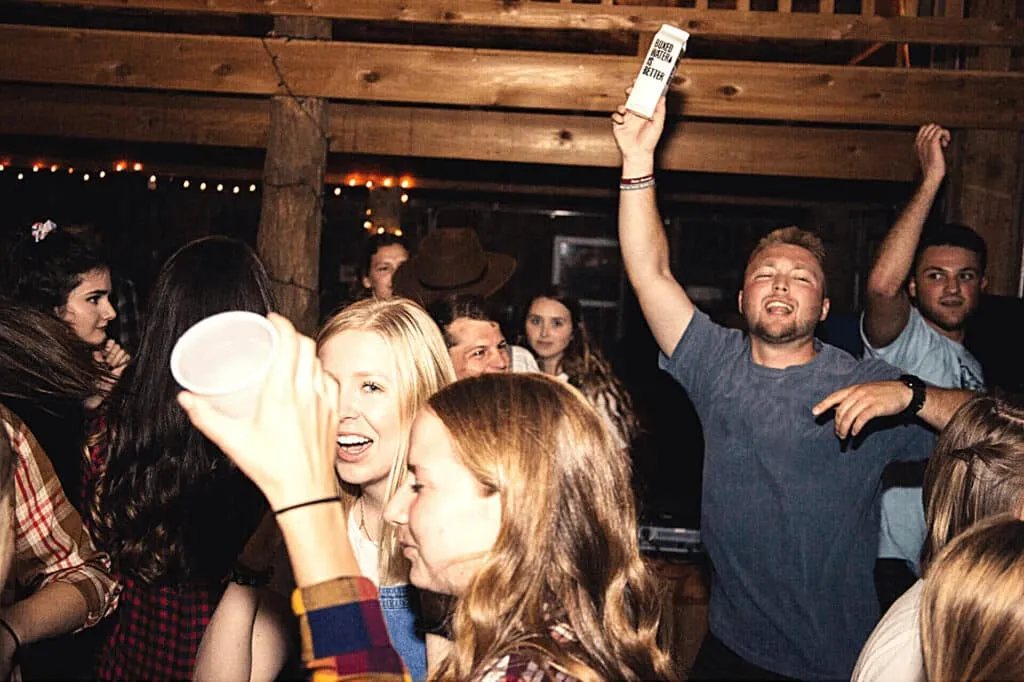- Advertise
-
Subscribe
Partying on Campus: a False Sense of Security

Every student knows just how important nightlife is when it comes to making the most of your university experience. In fact, a large portion of students choose their institutions based on all the partying possibilities they offer.
Feeling like you could just leave your dorm and step into one of the wildest nights of your life sounds like every freshman’s dream. There’s no need to take the train into the city, or spend an hour queuing outside of a downtown disco.
Plus, it’s definitely safer than being around a bunch of sweaty, creepy strangers in some random club, amiright?
That’s where you’re wrong.
Actually, these days it’s hard not to correlate the word ‘sexual assault’ with ‘frat parties’, and ‘drink spiking’ with ‘UK campus clubs’. Partying on campus might seem safe, but beneath this sense of security is a much darker reality.
We’re here to debunk a few myths about the safety of partying on campus.
Myth: parties are closer to home, it must be safe to leave/go alone
Fact: Well… not exactly
Sure, having to take public transport in the middle of the night after six rounds of some-or-other cocktail isn’t the safest option. Big cities have a high night-time crime rate, often associated with alcohol and partying.
That being said, close proximity doesn’t always guarantee safety.
You might have less of a distance to walk when you’re going home from a campus nightclub to your student accommodation, but an unlit, empty street is an unlit, empty street anywhere. Many people can take advantage of the fact that you feel safe enough to walk alone in the middle of the night.
Students have spoken up about the fact that security guards are available at many party venues and can walk you home if you’re too drunk, so it’s never worth risking it alone!
Myth: everyone knows everyone, so no one’s going to mess around
Fact: you’re forgetting something: frat / lad culture

You might think that the relative lack of anonymity at a house party might mean that everyone’s going to be on their best behavior. In truth, you’re forgetting that people tend to stick by their friends, even when they’re obviously in the wrong.
Frat / lad culture is actually the breeding ground for sexism, sexual assault and getting violently wasted.
One aggressively drunk college kid yelling at you for knocking over his drink is bad enough, but when five of his friends are egging him on, it’s just bad news for everyone.
Myth: it’s a controlled environment, nothing can go wrong
Fact: you can’t always trust ‘the people in power’

When it comes to campus partying, it can feel a little like “Big Brother is always watching” (aka your university). Campus nightclubs are run by the Student’s Union, and many house parties take place in university-operated accommodation.
Many students complain about awful incidents with security guards themselves
But just because the university is involved, it doesn’t mean that all risks have been eliminated. While Students’ Unions continue their efforts to make campus partying safer by having security in or around specific party venues, many students complain about awful incidents with the security guards themselves.
While there definitely are a good bunch of campus security guards who will make sure to escort you home if you’re drunk, the experience isn’t always that pleasant.
One student who requested to remain anonymous recalls incidents he’s witnessed on nights out: “I have friends who have been upset because of mental illness, or just generally upset, and security’s focus has been on kicking them out, even if they’re not drunk. One friend simply asked them to get her boyfriend from inside so she wouldn’t be alone, and they refused.”
As for frat parties, some houses have taken on the idea of ‘consent talks’. As part of their initiation, brothers must learn specific rules of consent in order to be accepted into the frat.
While this effort helps in spreading awareness, it doesn’t exactly guarantee that the pledges will end up following through when the time comes.
Myth: it’s easier to report incidents to universities
Fact: on-campus assaults are massively underreported

Students lack the confidence to report incidents to their universities, out of fear that it won’t be taken seriously, or that it might backfire against them.
This comes from the fear of being dismissed by the student body union, or facing judgement by their peers if word gets out.
One female student, who has asked to remain anonymous, shared her ordeal with reporting incidents at campus parties. Post-Summer Ball, the student woke up at the tennis court on campus, alone and with no memory of the night before. She was taken care of by paramedics and a few Students’ Union staff who helped her get home, but received little help afterwards. When she attempted to report this incident of getting spiked at summer ball, she was faced with a shoulder shrug by her university.
They claimed they had no cameras at the venue and could not follow up on what had happened to her that night. Their only response was to start putting spikeys on the bar at parties, which isn’t a way to tackle the problem head-on.
“I felt pretty much like there was no point going to the Students’ Union due to the horror stories that people would say they have experienced, and also from my own experience.”
Upon experiencing a second incident of sexual assault, a year later at another campus party, the same student felt hopeless in seeking help from her university. “I felt pretty much like there was no point in going to the Students’ Union due to the horror stories that people would say they have experiences, and also from my own experience.”
The false sense of security itself can be part of the problem
Ultimately, the false sense of security that comes with partying on campus can actually be part of the problem.
There’s no doubt that partying in a city nightclub and partying at university grounds are entirely different experiences. However, universities should step up their effort to increase awareness about the risk factors present at their parties so students can prepare themselves and ultimately have a safer experience.






